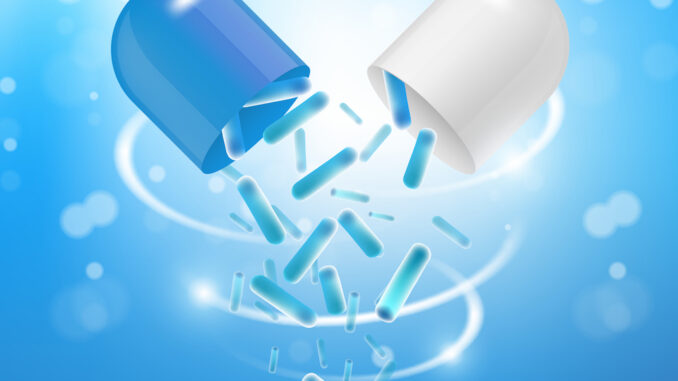
Global biotech executive Thomas Mitchell is set to drive growth, innovation and expansion across Asia Pacific for thriving biotechnology start-up BiomeBank, Australia’s first public stool bank and microbiome therapeutics company, bringing with him a wealth of experience in the discovery and development of microbiome drug products.
Relocating to Adelaide South Australia from Cambridge UK, Mr Mitchell takes the reins as CEO of BiomeBank to enable effective translation of the company’s portfolio of assets. The company is soon expected to gain TGA approval of their GMP facility which manufactures a broad-spectrum live biotherapeutic product (LBP) for prevention of recurrent Clostridioides difficile with plans to expand it to other indications.
Established in 2016 by co-founders and Adelaide-based gastroenterologists Dr Sam Costello and Dr Robert Bryant, BiomeBank opened its purpose-built laboratory in Thebarton in March 2020 to enable the quality-controlled donation of healthy stool from donors, to provide safe access to faecal microbiota transplant (FMT) material. This next stage will see the company develop multiple microbiome drug products, establishing itself as the leading microbiome company in the APAC region.
FMT has been shown to be a safe and effective treatment in the prevention of recurrent Clostridioides difficile, with emerging evidence demonstrating the microbiome has the ability to treat other diseases such as ulcerative colitis where Dr Costello and Dr Bryant have demonstrated efficacy in a landmark trial published in JAMA[1].
BiomeBankhas provisional approval for use and supply of FMT, as a class 2 biologic, in Australia and is planning a submission to the TGA in 2021 for specific indications.
BiomeBank Chair Dr Stephen Rodda said the new CEO appointment represents a significant milestone in the growth and success of the developing biotech company as they look to deliver more impact for patients with debilitating gut diseases across the Asia Pacific region.
“Thomas brings strong expertise in microbiome drug development, having occupied previous leadership positions at both Finch Therapeutics and Microbiotica, key microbiome biotech companies in Boston USA and Cambridge UK,” Dr Rodda said.
“This is an exciting period for BiomeBank as we head towards TGA approval for our product, which will be used to treat unmet medical need in many indications across Australia with the potential for global expansion.”
South Australia’s Chief Scientist Professor Caroline McMillen also applauded the new CEO appointment and the innovation mindset of the BiomeBank team.
“I was thrilled to hear Thomas Mitchell accepted this position and was relocating to Adelaide, which is emerging as a magnet city, attracting talent from across the globe,” Prof McMillen said.
“I’m very much looking forward to the many innovations for gut health that will be made possible through BiomeBank with a passionate expert team at the helm.”
Mr Mitchell will be backed by the expertise of Chief Medical Officer Dr Sam Costello and Chief Technology Officer Dr Sam Forster, both of which have made important contributions to the microbiome field.
BiomeBank’s new CEO Mr Mitchell expressed his excitement stating the conditions are right for BiomeBank to make a meaningful impact on the global stage.
“It is an exciting opportunity to return to Australia and join a world-class team of microbiome experts to develop microbiome therapeutics,” he said.
“With BiomeBank’s talent and pipeline we are well-positioned to be a leader in the field.”
About BiomeBank
BiomeBank is a clinical stage microbiome biotech company focused on developing live biotherapeutic products (LBP) to treat patients with unmet medical need.
The company is located in Adelaide Australia, providing FMT, a broad-spectrum LBP used to treat recurrent Clostridioides difficile.
BiomeBank was originally launched through the support of The Hospital Research Foundation Group.
[1]Costello SP, Hughes PA, Waters O, et al. Effect of Fecal Microbiota Transplantation on 8-Week Remission in Patients With Ulcerative Colitis: A Randomized Clinical Trial. JAMA. 2019;321(2):156–164. doi:10.1001/jama.2018.20046

